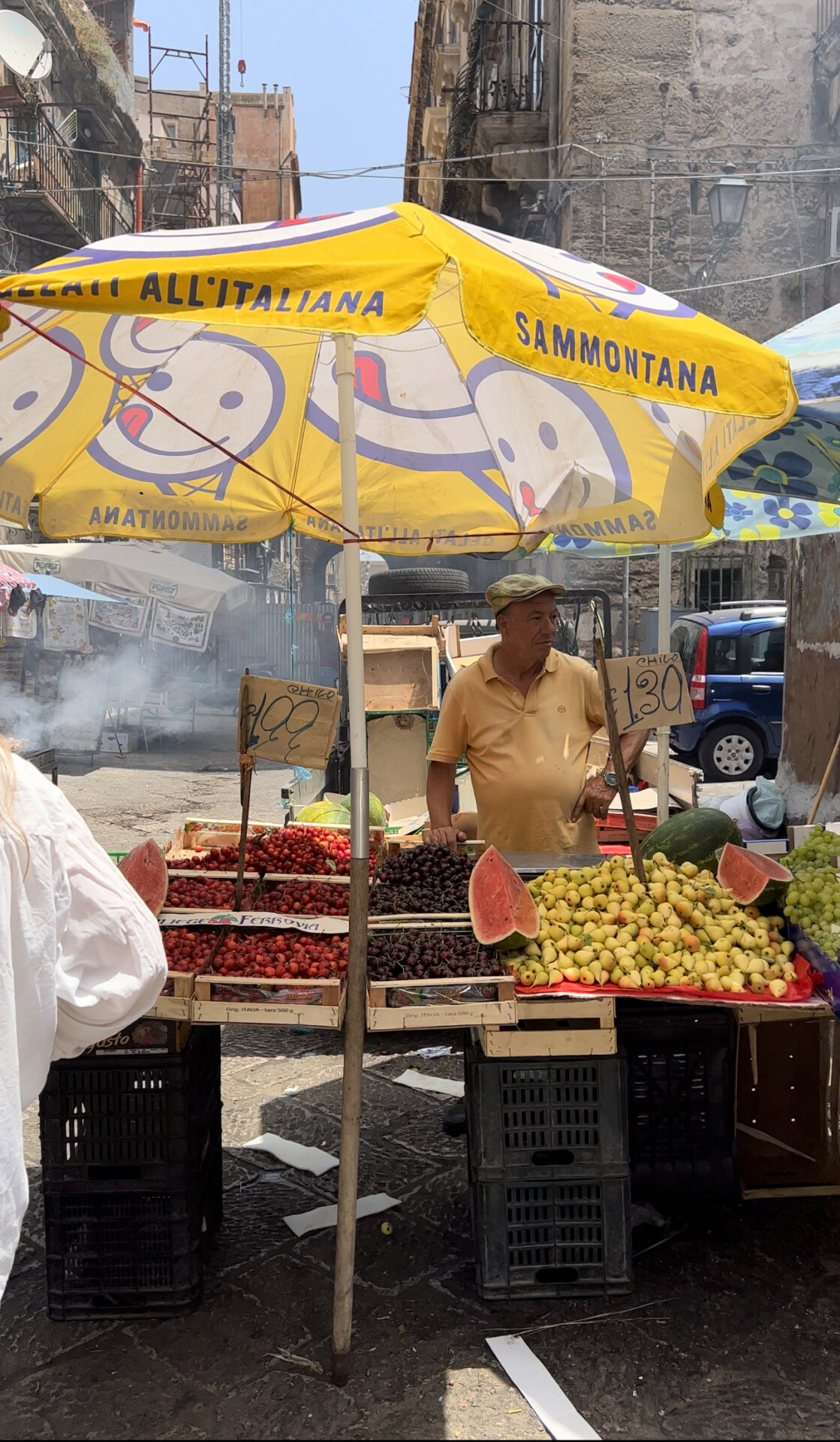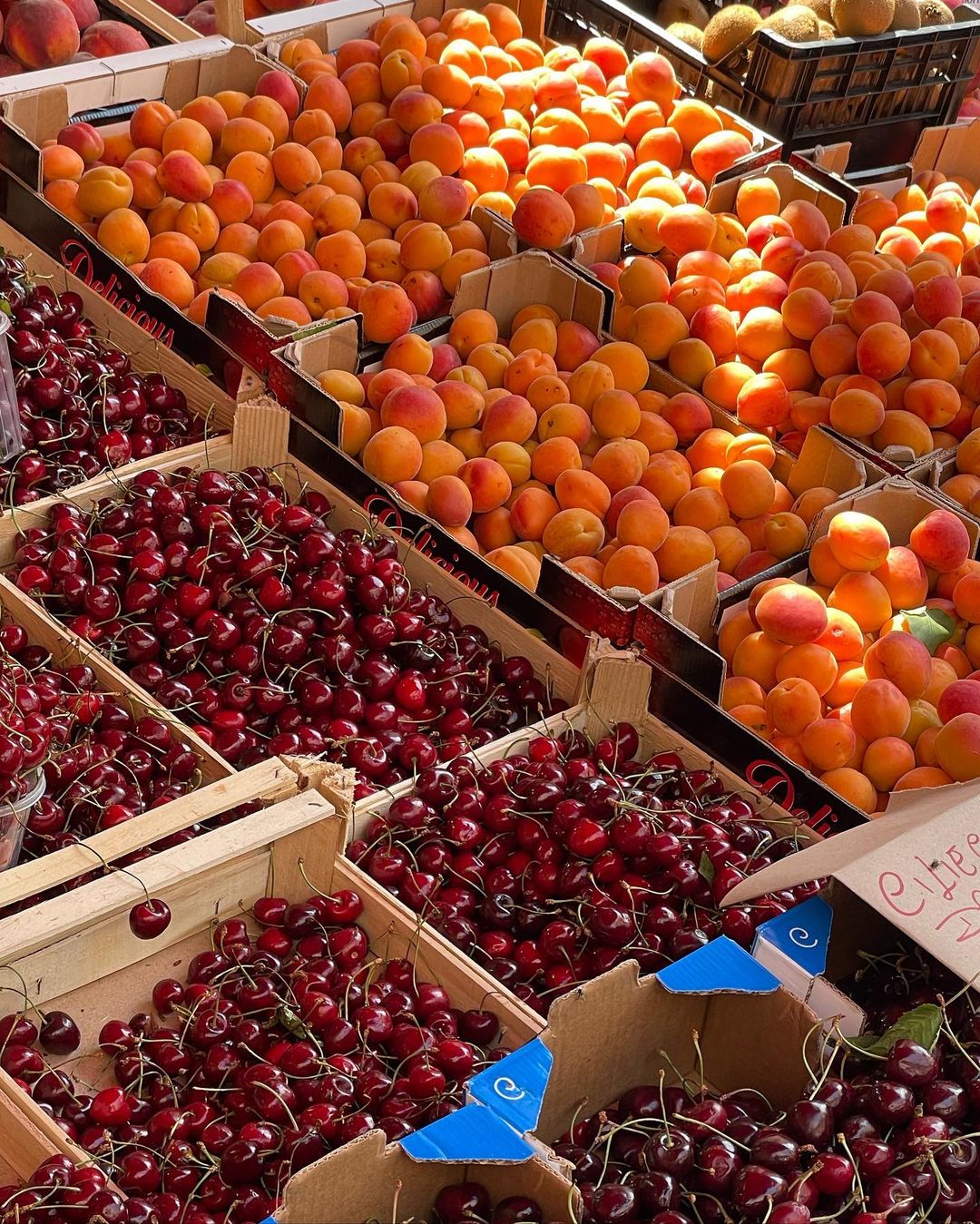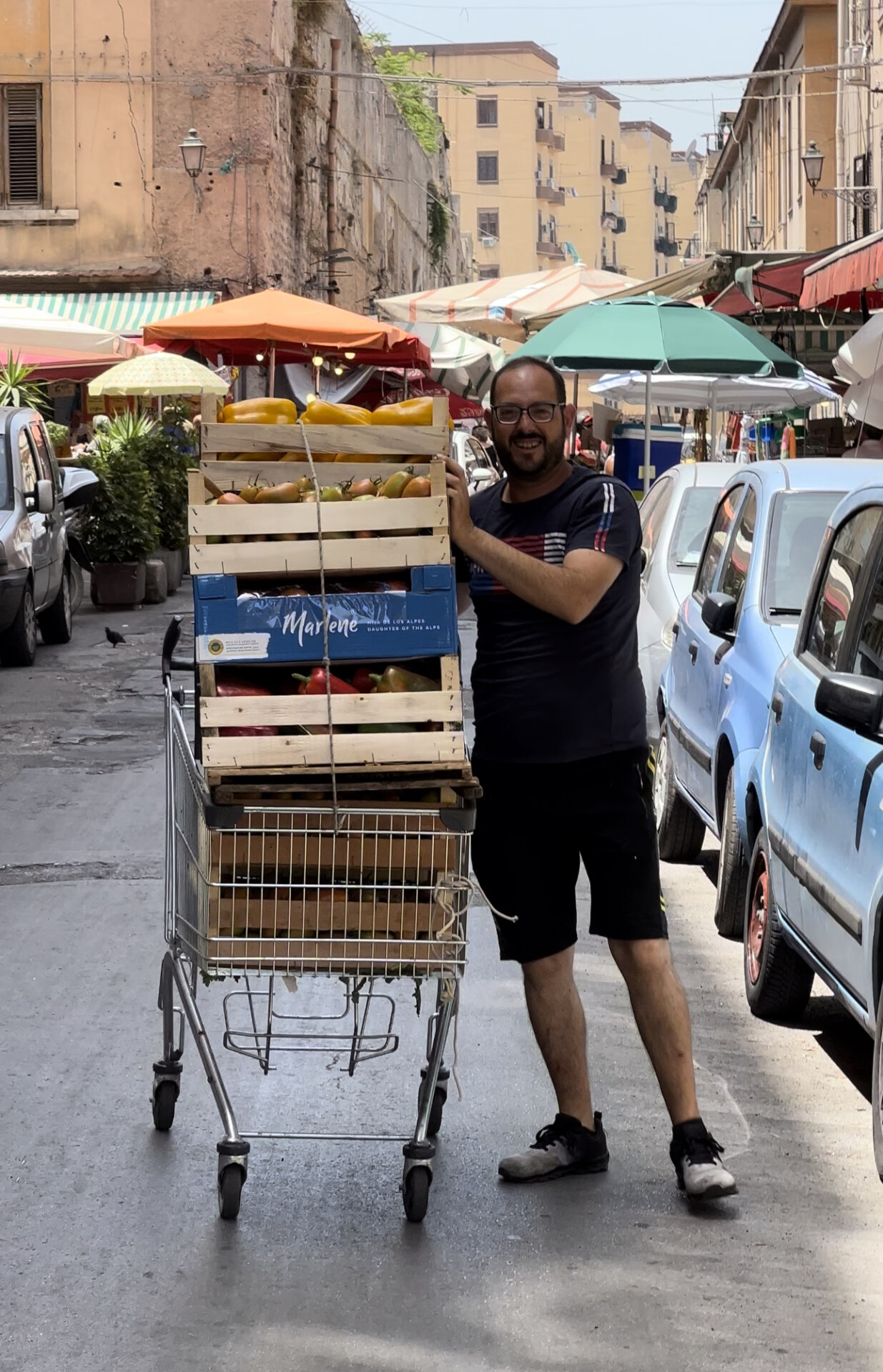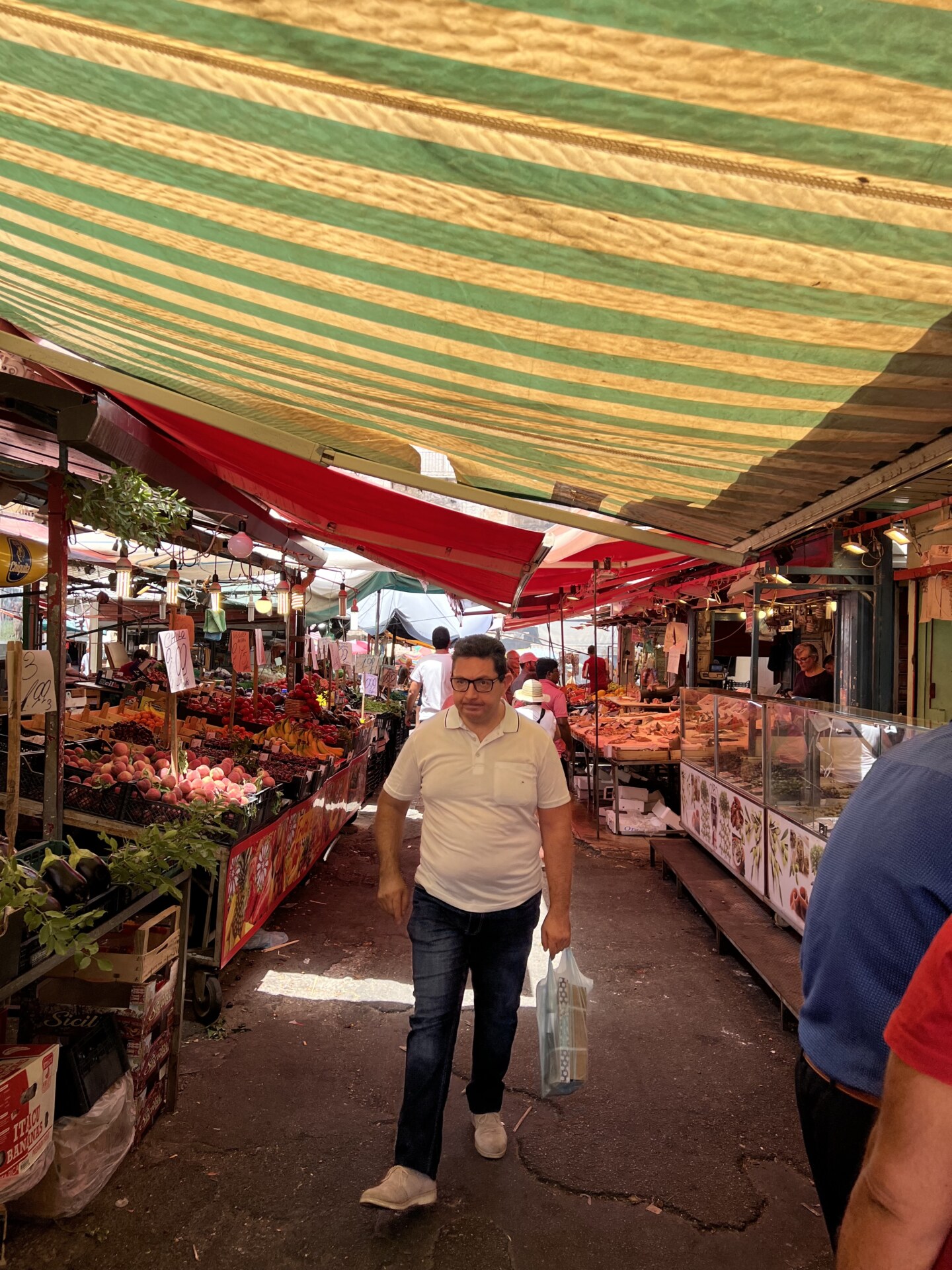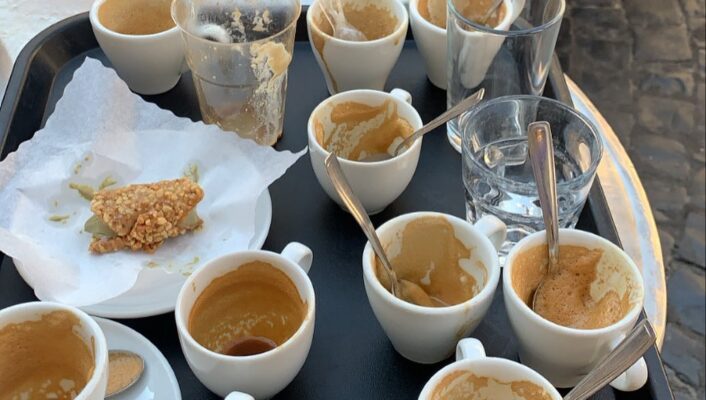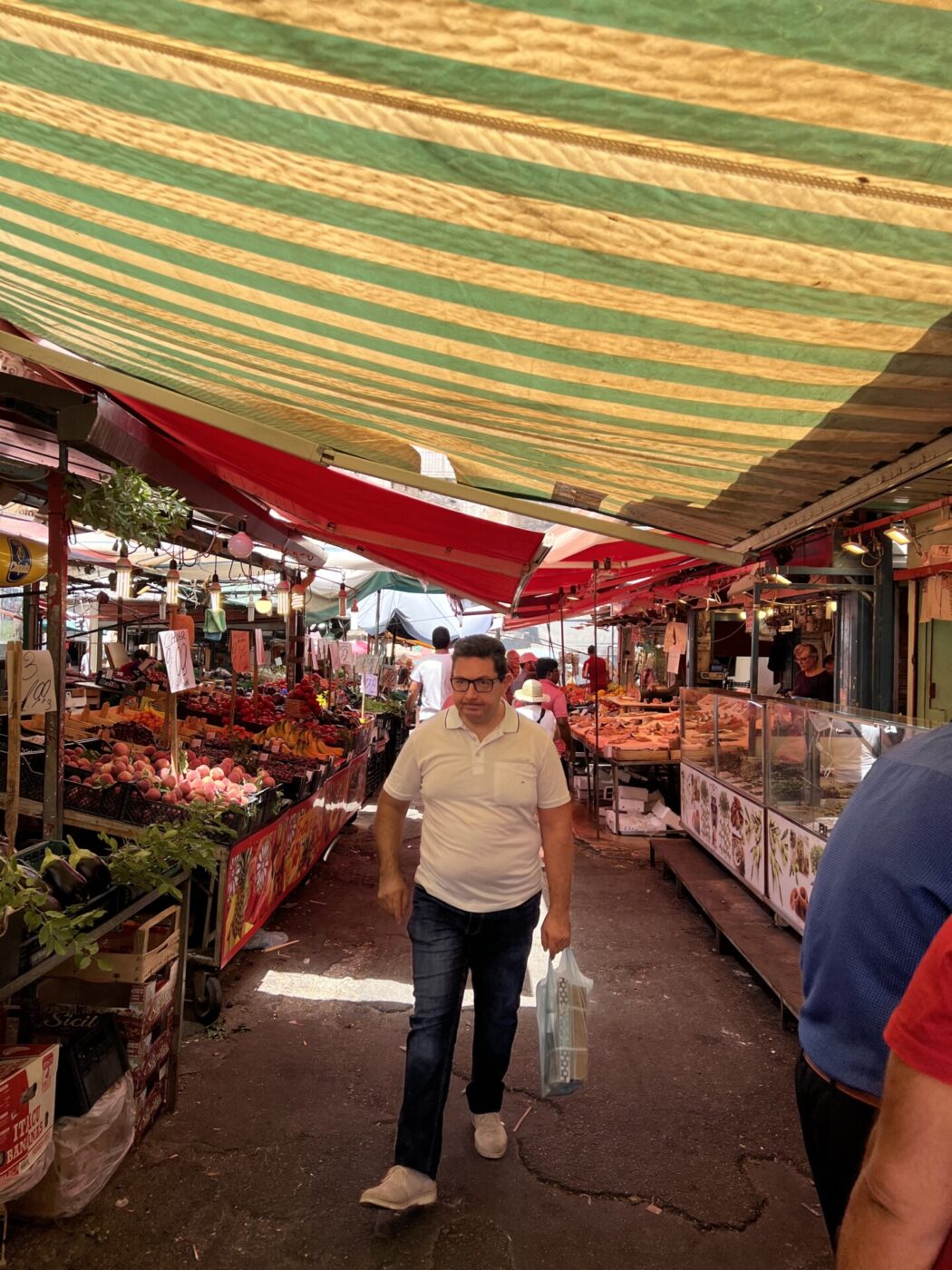The smoke of roasted sardines, the yeasty fragrance of fresh bread, the sizzle of frying oil pots, and the multicolored abundance of fruits and vegetables. I stop for a salty breakfast of pane and panelle, rigorously seasoned with a fresh squeeze of lemon, and observe the morning market frenzy–a daily unscripted play here in the streets of Palermo’s Ballarò market. In front of me, a foreign couple inadvertently become, for just one minute, the protagonists.
The man is walking ahead, distracted by the overload of sounds, smells, and textures coming from all directions. The woman is behind him, her attention instead taken by lush baskets of ruby-hued Sicilian strawberries. Signor Vincenzo, the stall’s proprietor, proudly exhibits the season’s abundance over his booth. As an experienced merchant, he can’t help but notice that the woman’s stride slows as she catches sight of those succulent fruits.
Vincenzo dramatically, yet rhythmically, yells:
“Un ci’ catta i frauli…. povira figghia …trista è..iddu un ci vadda..idda vadda disiannu i frauli!”
“He’s not buying her some strawberries…. poor little one…. look how sad she is…. he’s not noticing that all she desires are these strawberries!”
And then, louder:
“Zitu, cattaci i frauli ca su duci duci! Duci duci comu l’ammori!”
“Hey boy, buy her some strawberries, they are very very sweet! Sweet as love!”
I hope for a happy ending–one in which the boy buys her some strawberries and she asserts the fruits’ deliciousness. Sadly, she doesn’t get what she longs for… but I do, and happily confirm to Signor Vincenzo that his strawberries are indeed very sweet.
This little acting scene is just one of many constantly performed at Ballarò, where the historical market’s ensemble of unrehearsed, yet very talented, local performers engage with locals and foreigners in their ancient dialect.
Signor Vincenzo’s playful sonet is an example of what Sicilians call an abbanniata. From the latin bannum (to issue a public decree), this verb refers to the merchants’ calls and songs meant to inform clients of their produce and to attract them to their stalls. Like Signor Vincenzo’s strawberry number, an abbanniata is usually a funny rhyme: the point is not necessarily to make sense of what is actually being hollered, but to make market-goers laugh with the intonation and playful tone. The deep plangency of such calls has impressed me since I was a kid and walked the markets in Catania with my grandma–even though I definitely did not understand the Sicilian dialect. At Ballarò, as in any other local market in Sicily, every vendors’ abbanniata rhythmically follows another, creating a repetitive flow of sounds that echoes from stall to stall.
This orchestra has been playing since the 9th century AD. One of the oldest historical markets of Palermo, Ballarò’s origins trace back to the Arab domination of the island: historians theorize that the name Ballarò derives from the Arab Bahlara, the name of a nearby village where the Arab merchants of Ballarò came from.
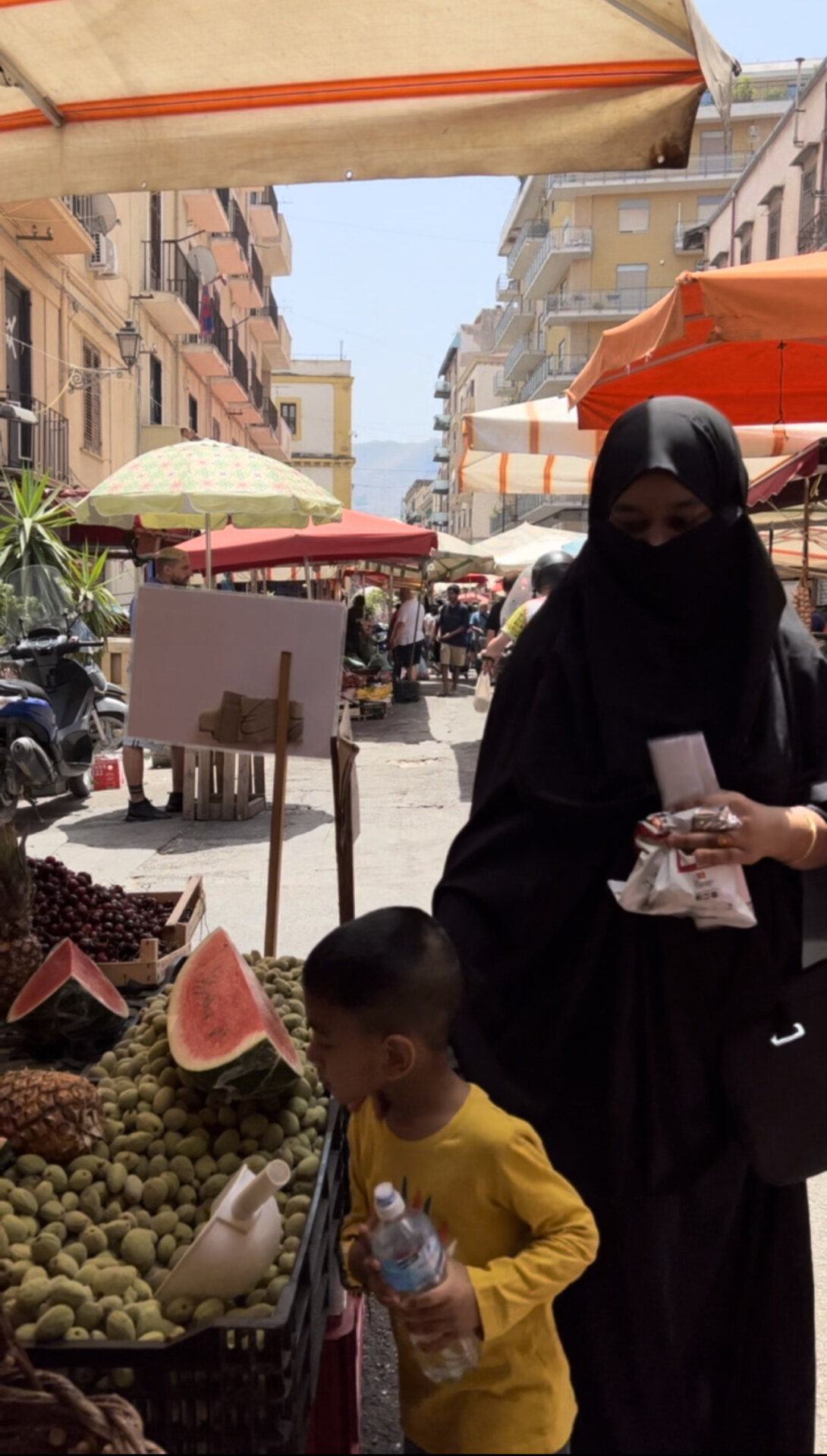
The mingling of cultures and peoples from all over the world continues at the market to this day. I met Ahmed who, while rapidly fulfilling orders for friends and clients, told me about the community of Bangladeshi merchants at Ballarò. Everything he sells is cultivated by him in the countryside of Palermo, and his thai basil, string beans, curious looking squashes, and green papayas sit right next to the local (and gigantic) green cauliflowers of Signor Giuseppe. Their friendly proximity, as well as the enthusiasm with which they both shared recipes with me, hints at the inclusivity of a market that perpetuates the long-standing history of Sicily as a rich multicultural hub. At Ballarò, traditions and languages have been mixing up and evolving into new ones tirelessly: the market has always functioned as a space of social aggregation and offers ceaseless opportunities for sharing.
Pane e panelle is the quintessential example: the Arabs introduced chickpea flour to Sicily in the 9th century, and, at the time, the flour was mixed with water and simply cooked on typical Middle Eastern stone ovens like a flatbread. The taste of this chickpea bread wasn’t a hit amongst locals, but, some centuries later during the Angevin empire, the dough was fried and became the famous and popular panelle. This continuous cross-pollination of cultures is contemporary here at Ballarò too, where international summer hits from 2005 coexist with the abbanniate of the merchants, Bangladeshi vegetables crossbreed with local produce, and fried-at-the-moment panelle are served with an Aperol spritz.
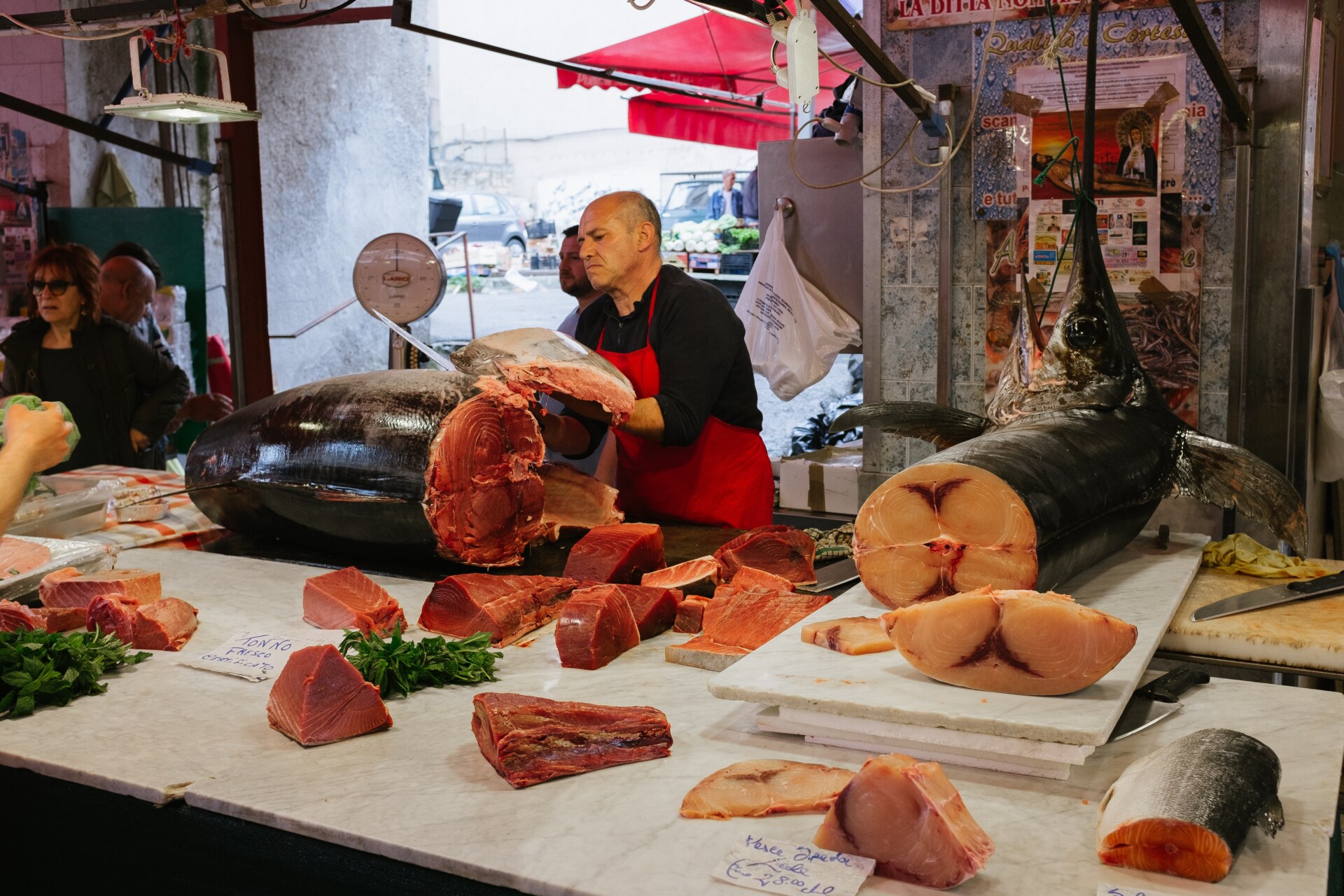
Signor Tonino helps drive home the point of the market’s collaboration: selling garlic heads and bundles of fresh parsley and mint, Tonino has always strategically positioned his stall in front of Signor Nunzio’s fish stand, called Quattrocchi, to encourage the proper seasoning of fish. In one swift motion, he wraps the bundles up in yesterday’s newspaper, Il Quotidiano di Sicilia, and hands them over in exchange for one euro.
I ask how long he’s been working here, and he replies,“Sò natu quì! Eru nicu nicu, ora haiu 70 anni.” (“I was born here! I was very very young, now I’m 70 years old.”) He doesn’t give me the time to reply before he starts emphatically asserting, “U mercatu più beddu è Ballarò! U più beddu du mundu, no solu d’Italia!” (“The most beautiful market is Ballarò! The world’s most beautiful one, not just Italy’s!)
I can see in his eyes how much this market means to him, all the work he has put in, all the faces he has seen, and all the beauty he is able to trace back to the years of life spent here.
“Iu ceccu di campare cca’ tiranni a junnata, ma haju imparato chistu jè ‘n travagghiu unni ti impegni jornu pi jornu.” (“I’ve always tried to make a living here, but I learnt this job is a commitment you make every single day.”)
His honesty humbled me, and left me thinking of the real life of a merchant, the life behind the stage curtains pulled and drawn everyday for the market’s shoppers. I wonder if the joy and fun of this community spreads beyond the opening hours, and I realize it does when Signor Tonino fools me, pretending to be Giuseppe’s brother, the gigantic cauliflower man, clearly younger in age. The joke goes on amongst laughs between the two of them and they label me “La Romana”. I say goodbye to them with a smile on my face and a few bundles of parsley in my hands.
Interaction with the local merchants is an integral part of the experience. You cannot, and won’t be able to, walk around Ballarò as if you’re in a grocery shop where, usually in a hurry to make ourselves dinner, we rarely stop to talk to the cashiers. Each interaction is a celebration of the people who have committed their lives to selling the best food Sicily has to offer and to carrying on the ancient legacy of a market that has historically represented an ever-evolving community of peoples, cultures, and traditions.
As I finally leave the market, I reflect on Ballarò’s very Sicilian playfulness, conviviality, and food–all of which feels a whole lot richer when celebrated in unison.
